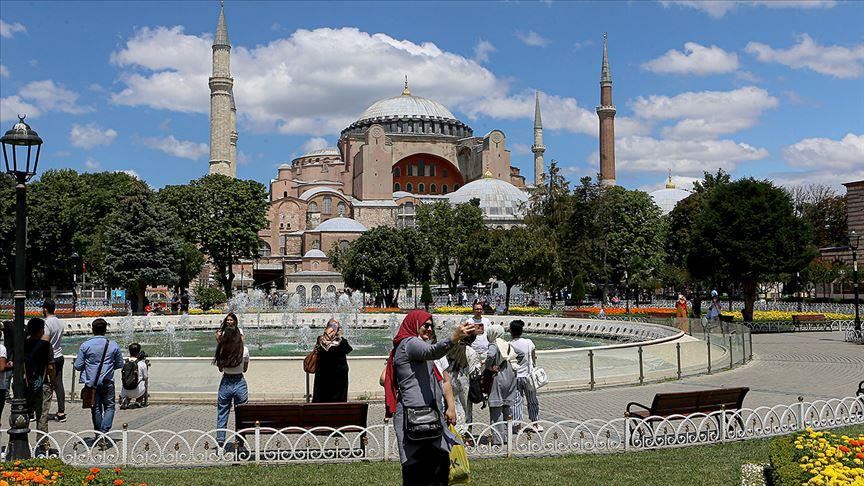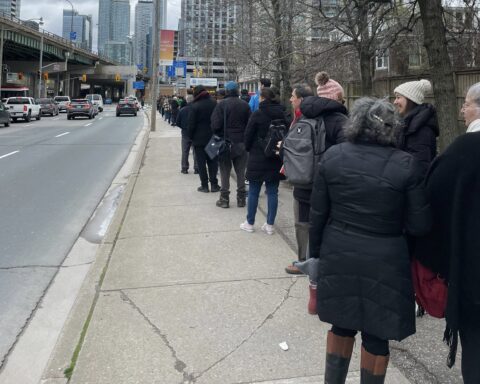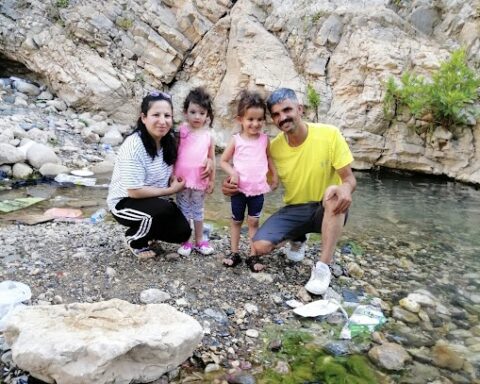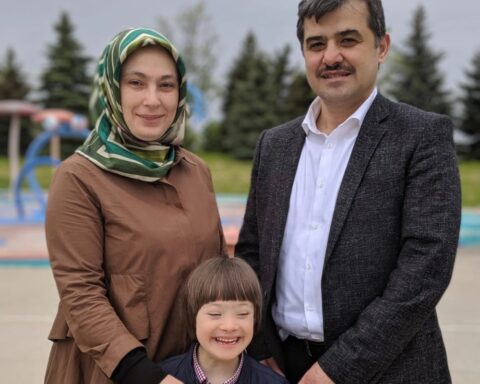In 2017, well educated, bilingual Turks left the country in masses (see statistic below), taking their talent and capital with them. I was one of them. It’s been three years since I moved to Canada. Physically I am here, but my heart is still beating in my homeland, and breaking at the news of every natural disaster, every economic recession, every injustice.
But the Turkish President Recep Tayyip Erdoğan’s July decree to convert Hagia Sophia into a mosque is more than heartbreaking for me. It is depressing.
Hagia Sophia is a massive Byzantine Orthodox Christian Cathedral originally built in 537. It was turned into an imperial mosque following the Ottoman conquest of Constantinople in 1453, and then turned into a museum in 1934 by Mustafa Kemal Atatürk, the founder of the Turkish Republic.
The decision to convert Hagia Sophia back into a mosque drew international criticism. Greece and Russia described the move as a cultural and spiritual misappropriation, Unesco called it regrettable, and Pope Francis said he was “pained” by Turkey’s decision.
Does the conversion carry a message that Istanbul, the cradle of civilization, religions, and cultures that served as the capital of the Roman, Byzantine, and Ottoman Empires for 16 centuries, has lost its identity and tolerance?
Does it contradict Atatürk’s legacy of shifting Turkey from a predominantly Islamic nation to a secular state?
Is it a move to draw attention away from the economic collapse in the country?
I spoke to Turkish Canadians to learn about their thoughts and feelings about the situation.
Hagia Sophia reduced to a political ploy
Nural Sümbültepe, a 55-year-old English Instructor and Assistant Director of the Vancouver Turkish Film Festival (VTFF) says that, as a person who grew up in Antioch and Alexandretta, two diverse, multi-faith cities in Turkey, she feels dismayed by the recently imposed changes, which set Turkey back at least a century in terms of tolerance and human rights. At a time when the world is finally engaged in discussions of inclusiveness, diversity, and justice, converting Hagia Sophia into a mosque damages the legacy and the identity of the cosmopolitan city of Istanbul.
Sümbültepe believes that Hagia Sophia has become a source of conflict and an internal rift between Islamists and secularists in recent years.
“I suspect that Erdoğan, whose party lost the election in Istanbul (a very significant loss), wants to reassert himself and cement his power as an Islamist by making his mark on Hagia Sophia,” she says. “It is frustrating to see that Hagia Sophia, an architectural masterpiece and a world cultural heritage site, has been reduced to a political ploy.”
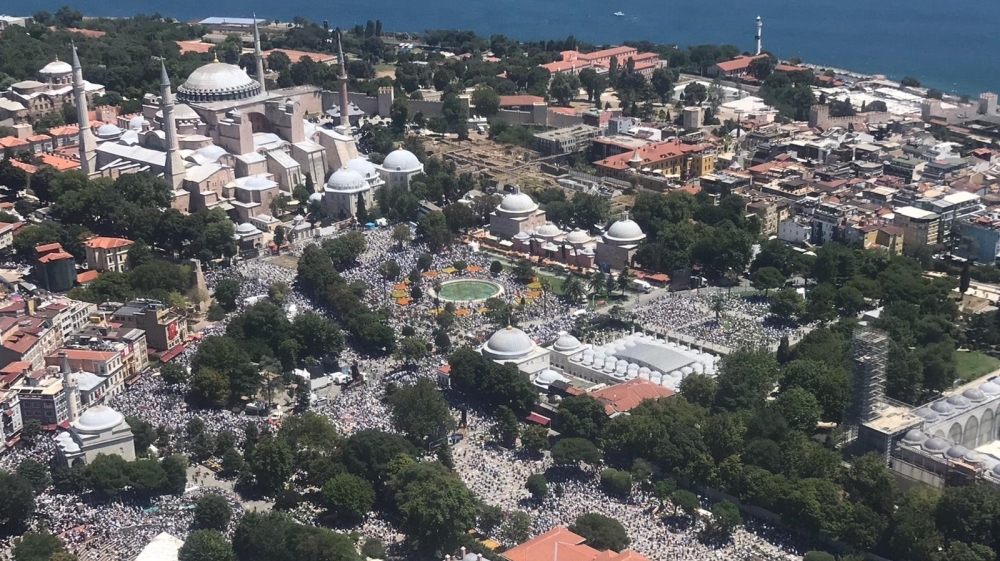
Reversing Atatürk’s legacy
Haluk Erengüç, a 69-year-old wine importer, states that Hagia Sophia belongs to the global community as a World Heritage site. He feels sad over what he sees as an act against Atatürk and a secular, democratic Turkish Republic.
“Converting Hagia Sophia into a museum contradicts Atatürk’s famous quote, ‘Peace in the country, peace in the world,’” he says. “It didn’t prevent Muslims from praying there, in a dedicated area as a mosque, before. Although current president Recep Tayyip Erdogan said that he was not in favor of converting it to a mosque fully, not long ago, he turned 180 degrees to use the conversion as political ammunition to empower his weakening political position.”
Yet, Turkish Canadians I have spoken to are not very surprised by the decision.
Eser Ince, a 60-year-old retired banker and an amateur artist, thinks that the government has been manipulating the population by using the religion for many years.
“They have been increasing their vote base by expanding ignorance continuously,” she says. “Atatürk’s reforms aimed to educate the population and integrate it into the modern world,” but in the last 20 years, the education system has been neglected, while the government has focused on vocational religious schools, according to Ince.
“The institutions producing science, art, and culture have been withdrawing from society’s daily life,” she adds. “These changes in the education system will show their consequences more and more in the coming years.”
Economy will suffer
Eylem Sönmez, a 42-year-old real estate agent and Director of the Vancouver Turkish Film Festival, wants to draw attention to another significant point: Hagia Sophia is one of the most visited places in Istanbul, attracting more than 3.7 million visitors a year.
“Turning Hagia Sophia into a mosque doesn’t only threaten secularism and peace in Turkey,” she says. “It also means facing losses [of] as much as $72 million in annual ticket sales. I believe our administration should focus on moving forward and improving the economy in the country.”
Ince adds that the situation and its adverse effects on the economy contribute to the country’s isolation in the world. He says, “Let’s imagine Greece or Germany converting Turkish mosques into churches. What do you think the reaction of Turks would be?”
Every person I’ve talked to agrees that Turkey is in a state of economic collapse, and there is no hope of overcoming it in the near future. The act of converting Hagia Sophia into a mosque marks a cultural, scientific, political, economic, democratic, and ethical deterioration of the Republic of Turkey, according to many Turkish Canadians.
The Canadian Council of Churches is also saddened by the development. “For over a millennium it [Hagia Sophia] has been a place of worship for both Christians and Muslims,” and “has served as a site of encounter, dialogue, and peaceful coexistence of peoples and cultures,” the council wrote in a statement. “We fear that … the Turkish government is undermining fragile relations between Christians and Muslims both within and beyond Turkey.”
Statistic: The Turkish diaspora in Canada is a community of over 65,000 people. In 2017, emigration from Turkey totaled 253,640 people, increasing by 42 per cent from the previous year, according to the Turkish Institute of Statistics. In 2019, the number rose to 330,289.
Photo Credit: Anadolu Agency
Ayşe is an author, journalist and volunteer Communications Coordinator for the Vancouver Turkish Film Festival. She moved to Vancouver from Turkey with her dog and two children in 2017. Ayşe is the author of Anneee! Anne Oluyorum! (*Mooom! I’m becoming a Mom!) and Kanadalılaştıramadıklarımızdan mısınız? (*Not Canadian Enough?). Ayse also writes weekly articles for the independent internet newspaper T24.

